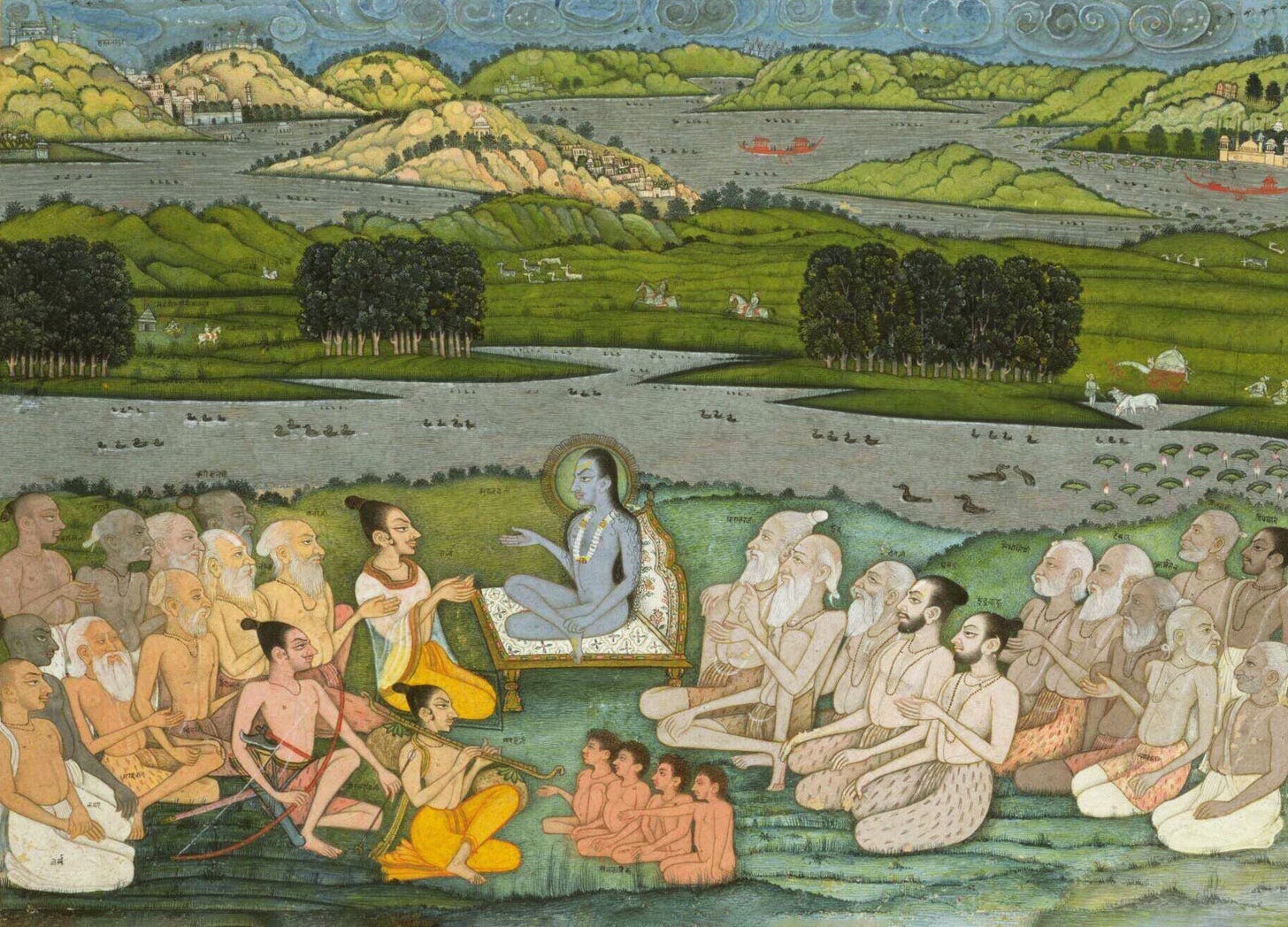Points of View
Combining yogic insights with critical thinking
At the start of teacher trainings, I often ask people for words they associate with yoga. Many say union, or variants on oneness and universality. So it’s intriguing to hear the response to a similar question on my year-long course, the Path of Knowledge.
Sharing thoughts on the first module recently – which begins with a slide titled “what is yoga?” – participants converged on a different consensus. Many of their one-word comments mentioned aspects of diversity, including “plurality”, “evolution”, and “multiplicity”. Another common theme was “perspective”, along with its plural.
A lot of yoga philosophy discusses how to reconcile the one with the many. However, even the concept of “yoga philosophy” needs some unpacking. To start with, there are multiple systems, and they often contradict each other. Secondly, the point of ideas is to put them into practice. As a previous article noted – quoting Haṭha Pradīpikā 1.65: “Success in yoga is not achieved by merely reading books”.
Meanwhile, “philosophy” has no direct Sanskrit equivalent. One term used for yogic wisdom is vidyā, which means “knowledge”. Another is darśana, which comes from a root (dṛś) that means “to see”. However, unless ways of seeing become ways of being, they remain abstractions. So the key in the end is embodying knowledge. Or to put it more simply, yogic philosophies ask what, how, and why – i.e. what to do, why bother doing it, and how to ensure that the what serves the why?
Exploring that last week on retreat in Switzerland, one of the participants from the last Path of Knowledge shared a reflection. Over the course of a year of inquiry, we’d deconstructed ideas that she now felt empowered to reconstruct, and to do so in ways that made practical sense. In other words, critical thinking on yogic traditions had cut through confusion about how philosophies relate to modern practice.
That’s a challenging process without some support. As the scholar Martha Henson explains in this video about her research with Ruth McNeil, practitioners who study often find it destabilising. Cherished assumptions get debunked, making it harder to know what to practise or teach. I aim to counteract that tendency by offering space for a range of perspectives, while relating discussions to practical priorities.
Enrolments for this year are now closed, but you can sign up here to hear first about next time. Or stay tuned for other study opportunities via my newsletter.

If you’d like to support Ancient Futures, please consider paying to subscribe or send me fuel…


